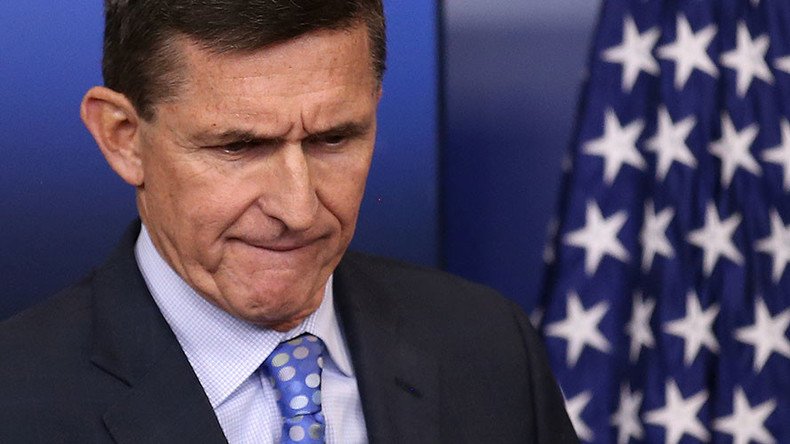Gen. Michael Flynn resigns as National Security Advisor over contacts with Russia

Michael Flynn, national security advisor to President Trump, stepped down over his phone talks with the Russian ambassador. The Kremlin spokesman, however, denied that lifting economic sanctions was discussed during the conversations.
Editor's note: The original version of this article mistakenly said Flynn “retired” instead of “resigned.”
Trump named retired Lt. General Joseph Keith Kellogg, Jr. as Acting National Security Advisor, according to Flynn's resignation letter. Trump is reportedly considering other permanent replacements.
POTUS Trump Names Lt. General Joseph Keith Kellogg, Jr. as Acting National Security Advisor-Accepts Resignation of Lt. General Michael Flynn pic.twitter.com/hrHNuefNe3
— The White House (@WhiteHouse) February 14, 2017
"In the course of my duties as the incoming National Security Advisor, I held numerous phone calls with foreign counterparts, ministers, and ambassadors," Flynn wrote. "These calls were to facilitate a smooth transition and begin to build the necessary relationships between the President, his advisors and foreign leaders. Such calls are standard practice in any transition of this magnitude."
“Unfortunately, because of the fast pace of events, I inadvertently briefed the Vice President Elect and others with the incomplete information regarding my phone calls with the Russian Ambassador. I have sincerely apologized to the President and the Vice President, and they have accepted my apology.”
WH managed questions at the Press Conference today. Press pool was pissed.
— Ed Schultz (@NewswithEd) February 14, 2017
Media outlets speculated in recent days over the contents and consequences of the phone call between Flynn and Russian Ambassador Sergey I. Kislyak.
The New York Times reported Monday that officials close to Vice President Mike Pence said Pence believed Flynn was lying when he downplayed his conversation with Kislyak, based on unreleased transcripts of their talk. The Washington Post reported that former Acting Attorney General Sally Yates and a national security official told White House consel Donald McGahn that Flynn was possibly vulnerable to Russian blackmail attempts.
The DOJ who hates Trump claims Flynn could have been blackmailed by Russia. Consider the politics of this...
— Ed Schultz (@NewswithEd) February 14, 2017
On Thursday, the Washington Post cited administration officials who claimed that the a main topic of the phone call was the sanctions.
The Russian authorities have stated that sanctions did not come up during the phone call.
Russian President Vladimir Putin spokesperson Dmitry Peskov assured reporters on Monday that Flynn and Kislyak had not discussed lifting sanctions, and neither had any other official Russian and US representatives.
“We have already said there have not been any [such talks].
“Obviously every ambassador informs the [authorities in Moscow] about all the contacts he has so the information gets to us, but we are not willing to comment on internal discussions being held in Washington,” Peskov said, as cited by TASS.
Speaking to reporters on Tuesday, Peskov chose not to elaborate on the issue. “We would not like to comment on it in any way,” he said, when asked about Flynn’s departure, stressing “this is a domestic issue of the Americans and the Trump administration, not ours.”
Flynn’s 24-day run on the National Security Committee was the shortest stint as national security advisor ever.
Michael Maloof, a former senior security policy analyst for the US Secretary of Defense, told RT the development appears to be a huge gain for US mainstream media and the Democrats.
“I think this is a victory for mainstream media and for the Democrats. They don’t like this administration and they’re going to do everything they can to chip away its credibility, and this is just the beginning,” Maloof told RT on Tuesday.
Flynn’s resignation itself “was a crescendo of noise from the mainstream media, and it distracted the White House from trying to get its job done,” Maloof said, adding, “The basic issue is – could Flynn, who was private citizen, be even talking to Russian ambassador about sanctions being lifted?
“That comes under what we call Logan Act, a 1799 law that has never been prosecuted, and it’s crazy,” the former Pentagon official added, referring to a law that outlaws negotiations between unauthorized citizens and foreign states in a dispute with the US. Violations under the Logan Act – last amended in 1994 – are still considered a felony and are punishable by a fine or imprisonment.












